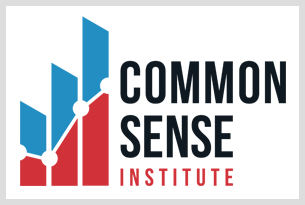FOR IMMEDIATE RELEASE
April 9, 2019
Contact: Cinamon Watson
303-949-7264
REMI Partnership study “Analysis of the Cost and Risk of Financial Insolvency for a Colorado Paid Leave Program,” analyzes the cost of Senate Bill 19-188
Denver, CO – A new study released by the REMI Partnership, “Analysis of the Cost and Risk of Financial Insolvency for a Colorado Paid Leave Program,” examines the assumptions behind SB 19-188, a bill to create a state-run Family Medical Leave Insurance Program in Colorado.
Colorado Senate Bill 188 proposes to establish a new state enterprise that would administer a paid leave insurance program. The REMI Partnership study provides a detailed summary of the bill, examination of the uncertain financial assumptions, operational disruptions, lessons from existing state programs, economic impacts, and outstanding research areas.
“While the intentions behind the program may be good, the assumptions that support the measure are questionable, raising the risk of a costly failure of the program that would amount to huge burdens on business and working families as well as negative impacts on other budget priorities like education and transportation,” said Jenifer Waller, COO and Senior Vice President of the Colorado Bankers Association.
To pay for the program, a new premium would be imposed on all Colorado payroll, excluding federal workers. Employers and employees would share the cost 50/50. The revenue generated by the premium would be used to administer the new enterprise and to pay paid leave benefit claims.
“To successfully create a new government program, legislators need a clear understanding of how much the program will cost and how it will be funded over time,” Chris Brown, Common Sense Policy Roundtable Director of Policy and Research. “If assumptions are unrealistic and unaffordable, there is a danger that policy makers will set the program to fail.”
Brown pointed to the uncertain financial assumptions as an example. According to the study, the estimated cost of SB 19-188 depends on several assumptions. The most impactful of those is arguably the rate of utilization. The fiscal note attached to SB-188 assumes a utilization rate of 3.5% which is lower than 2 of the 3 states that have a history of administering paid leave programs and includes a more generous benefit structure.
“In light of this and other questionable assumptions combined with the high costs of a program failure, lawmakers should consider a broader range of policy options that promote the private sector,” continued Brown.
In addition to delving into the financial assumptions, the REMI Partnership study also examines the economic impact of SB 19-188. The current estimated cost increase to businesses of more than $478 million would represent an effective tax increase of over 70% relative to corporate income tax.
Read the full study and key findings here.
###
About the REMI Partnership: Common Sense Policy Roundtable, Colorado Concern, Colorado Association of REALTORS®, Colorado Bankers Association, and Denver South Economic Development Partnership have partnered to develop independent, fact-based analysis that quantifies the broader economic impacts associated with policy changes. The partnership has provided Colorado lawmakers, policymakers, business leaders, and citizens with greater insight into the economic impact of public policy decisions that face the state and surrounding regions.

